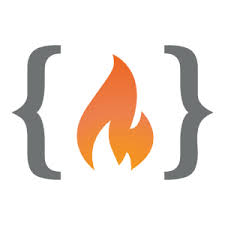 Today ArrayFire released the latest version of their ArrayFire open source library of parallel computing functions supporting CUDA, OpenCL, and CPU devices. ArrayFire v3.4 improves features and performance for applications in machine learning, computer vision, signal processing, statistics, finance, and more.
Today ArrayFire released the latest version of their ArrayFire open source library of parallel computing functions supporting CUDA, OpenCL, and CPU devices. ArrayFire v3.4 improves features and performance for applications in machine learning, computer vision, signal processing, statistics, finance, and more.
This release focuses on 5 major components of the library that are common to many areas of mathematical, scientific, and financial computing: sparse matrix operations, random number generation, image processing, just-in-time (JIT) compilation, and visualizations. A complete list of ArrayFire v3.4 updates and new features can be found in the product Release Notes.
“ArrayFire is a model example of how open sourcing scientific libraries should work,” said Kent Knox, Senior Member of Technical Staff from AMD. “They have made their own code open to the public for review by the community at large, and they build upon existing open source math libraries to improve their own. With their investment in robust automation, they enhance the correctness and performance of the overall scientific ecosystem.”
With over 8 years of continuous development, the open source ArrayFire library is the top CUDA and OpenCL software library. ArrayFire supports CUDA-capable GPUs, OpenCL devices, CPUs, and other accelerators. With its easy-to-use API, this hardware-neutral software library is designed for maximum speed without the hassle of writing time-consuming CUDA and OpenCL device code. With ArrayFire’s library functions, developers can maximize productivity and performance. Each of ArrayFire’s functions has been hand-tuned by CUDA and OpenCL experts.
ArrayFire has provided an elegant and simple solution for deploying GPU based machine learning applications,” said Jason Ramapuram, a machine learning engineer. “Being able to implement neural networks and auto encoders without delving into the any CUDA/OpenCL/BLAS details has been immensely helpful for research purposes. All of this is bundled in a brilliant open source package with an amazingly helpful team that is very open to implementing and resolving an issues that arise.”
ArrayFire launched in 2007 to commercialize GPU and accelerated libraries for scientists, engineers, and financial analysts, building the first and best platform for productivity in GPU computing. With advanced language processing and runtime technology to transform CPU applications to high performance GPU and accelerator codes, ArrayFire extends from desktop workstation performance to also fully leverage GPU and accelerator clusters. Based in Atlanta, Georgia, the privately held company markets ArrayFire for a range of defense, intelligence, biomedical, financial, research, and academic applications.



